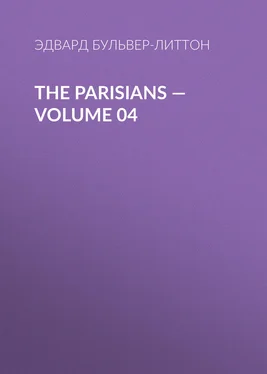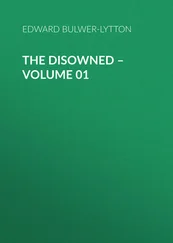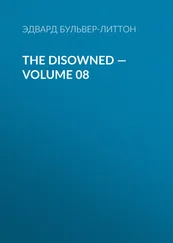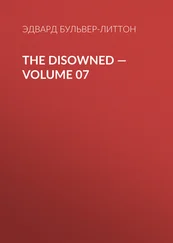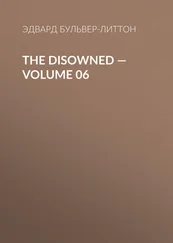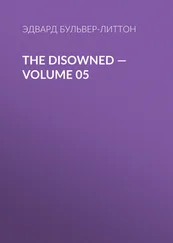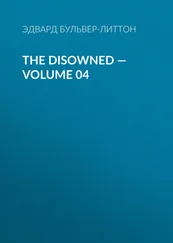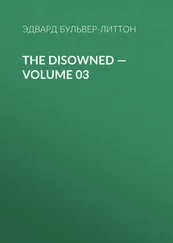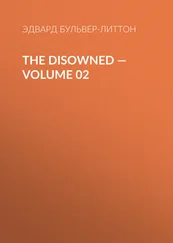Эдвард Бульвер-Литтон - The Parisians — Volume 04
Здесь есть возможность читать онлайн «Эдвард Бульвер-Литтон - The Parisians — Volume 04» — ознакомительный отрывок электронной книги совершенно бесплатно, а после прочтения отрывка купить полную версию. В некоторых случаях можно слушать аудио, скачать через торрент в формате fb2 и присутствует краткое содержание. Жанр: foreign_prose, literature_19, Европейская старинная литература, foreign_antique, на английском языке. Описание произведения, (предисловие) а так же отзывы посетителей доступны на портале библиотеки ЛибКат.
- Название:The Parisians — Volume 04
- Автор:
- Жанр:
- Год:неизвестен
- ISBN:нет данных
- Рейтинг книги:3 / 5. Голосов: 1
-
Избранное:Добавить в избранное
- Отзывы:
-
Ваша оценка:
- 60
- 1
- 2
- 3
- 4
- 5
The Parisians — Volume 04: краткое содержание, описание и аннотация
Предлагаем к чтению аннотацию, описание, краткое содержание или предисловие (зависит от того, что написал сам автор книги «The Parisians — Volume 04»). Если вы не нашли необходимую информацию о книге — напишите в комментариях, мы постараемся отыскать её.
The Parisians — Volume 04 — читать онлайн ознакомительный отрывок
Ниже представлен текст книги, разбитый по страницам. Система сохранения места последней прочитанной страницы, позволяет с удобством читать онлайн бесплатно книгу «The Parisians — Volume 04», без необходимости каждый раз заново искать на чём Вы остановились. Поставьте закладку, и сможете в любой момент перейти на страницу, на которой закончили чтение.
Интервал:
Закладка:
Have you known well any English people in the course of your life? I say well, for you must have had acquaintance with many. But it seems to me so difficult to know an Englishman well. Even I, who so loved and revered Mr. Selby,—I, whose childhood was admitted into his companionship by that love which places ignorance and knowledge, infancy and age, upon ground so equal that heart touches heart, cannot say that I understand the English character to anything like the extent to which I fancy I understand the Italian and the French. Between us of the Continent and them of the island the British Channel always flows. There is an Englishman here to whom I have been introduced, whom I have met, though but seldom, in that society which bounds the Paris world to me. Pray, pray tell me, did you ever know, ever meet him? His name is Graham Vane. He is the only son, I am told, of a man who was a celebrite in England as an orator and statesman, and on both sides he belongs to the haute aristocratic. He himself has that indescribable air and mien to which we apply the epithet 'distinguished.' In the most crowded salon the eye would fix on him, and involuntarily follow his movements. Yet his manners are frank and simple, wholly without the stiffness or reserve which are said to characterize the English. There is an inborn dignity in his bearing which consists in the absence of all dignity assumed. But what strikes me most in this Englishman is an expression of countenance which the English depict by the word 'open,'—that expression which inspires you with a belief in the existence of sincerity. Mrs. Morley said of him, in that poetic extravagance of phrase by which the Americans startle the English, "That man's forehead would light up the Mammoth Cave." Do you not know, Eulalie, what it is to us cultivators of art— art being the expression of truth through fiction—to come into the atmosphere of one of those souls in which Truth stands out bold and beautiful in itself, and needs no idealization through fiction? Oh, how near we should be to heaven could we live daily, hourly, in the presence of one the honesty of whose word we could never doubt, the authority of whose word we could never disobey! Mr. Vane professes not to understand music, not even to care for it, except rarely, and yet he spoke of its influence over others with an enthusiasm that half charmed me once more back to my destined calling; nay, might have charmed me wholly, but that he seemed to think that I—that any public singer—must be a creature apart from the world,—the world in which such men live. Perhaps that is true.
CHAPTER II
It was one of those lovely noons towards the end of May in which a rural suburb has the mellow charm of summer to him who escapes awhile from the streets of a crowded capital. The Londoner knows its charm when he feels his tread on the softening swards of the Vale of Health, or, pausing at Richmond under the budding willow, gazes on the river glittering in the warmer sunlight, and hears from the villa-gardens behind him the brief trill of the blackbird. But the suburbs round Paris are, I think, a yet more pleasing relief from the metropolis; they are more easily reached, and I know not why, but they seem more rural,—perhaps because the contrast of their repose with the stir left behind, of their redundance of leaf and blossom compared with the prim efflorescence of trees in the Boulevards and Tuileries, is more striking. However that may be, when Graham reached the pretty suburb in which Isaura dwelt, it seemed to him as if all the wheels of the loud busy life were suddenly smitten still. The hour was yet early; he felt sure that he should find Isaura at home. The garden-gate stood unfastened and ajar; he pushed it aside and entered. I think I have before said that the garden of the villa was shut out from the road and the gaze of neighbours by a wall and thick belts of evergreens; it stretched behind the house somewhat far for the garden of a suburban villa. He paused when he had passed the gateway, for he heard in the distance the voice of one singing,—singing low, singing plaintively. He knew it was the voice of Isaura-_he passed on, leaving the house behind him, and tracking the voice till he reached the singer.
Isaura was seated within an arbour towards the farther end of the garden,—an arbour which, a little later in the year, must indeed be delicate and dainty with lush exuberance of jessamine and woodbine; now into its iron trelliswork leaflets and flowers were insinuating their gentle way. Just at the entrance one white rose—a winter rose that had mysteriously survived its relations—opened its pale hues frankly to the noonday sun. Graham approached slowly, noiselessly, and the last note of the song had ceased when he stood at the entrance of the arbour. Isaura did not perceive him at first, for her face was bent downward musingly, as was often her wont after singing, especially when alone; but she felt that the place was darkened, that something stood between her and the sunshine. She raised her face, and a quick flush mantled over it as she uttered his name, not loudly, not as in surprise, but inwardly and whisperingly, as in a sort of fear.
"Pardon me, Mademoiselle," said Graham, entering; "but I heard your voice as I came into the garden, and it drew me onward involuntarily. What a lovely air! and what simple sweetness in such of the words as reached me! I am so ignorant of music that you must not laugh at me if I ask whose is the music and whose are the words? Probably both are so well known as to convict me of a barbarous ignorance."
Читать дальшеИнтервал:
Закладка:
Похожие книги на «The Parisians — Volume 04»
Представляем Вашему вниманию похожие книги на «The Parisians — Volume 04» списком для выбора. Мы отобрали схожую по названию и смыслу литературу в надежде предоставить читателям больше вариантов отыскать новые, интересные, ещё непрочитанные произведения.
Обсуждение, отзывы о книге «The Parisians — Volume 04» и просто собственные мнения читателей. Оставьте ваши комментарии, напишите, что Вы думаете о произведении, его смысле или главных героях. Укажите что конкретно понравилось, а что нет, и почему Вы так считаете.
